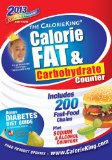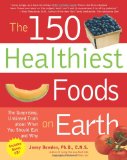Do "light" foods help when trying to slim down or lose weight?
"Light" suggests slimness, health, being fit and beautiful. All in all a diet that has less sugar and fat and therefore fewer calories.
At a first glance it seems like the ultimate solution. Eating and not worrying about putting on weight.
Unfortunately it is not like that at all. Even if the "light" foods have fewer calories than the reference foods (original products) there is no guarantee that weight will be lost or maintained.
- The consumers are made to believe that they can eat as mush of these foods as they please. However, calorie reduction will have hopelessly failed as soon as one decides to eat a second piece of "low fat" ham without having a guilty conscience.
- Nutritionists have found that products with natural fat contents provide longer satiety, as long as the food is eaten slowly. It takes a lot longer to feel full with light foods. For this reason one eats more.
- "Light" foods are usually calorie reduced versions of the "rather unsuitable" foods. "Low fat" salami or "light" mayonnaise still contains extreme amounts of fat and calories.
- So basically eating habits are not be improved by using "light" products. They tend to get worse. The often very necessary change in the diet does not take place.
- Fat is a flavour carrier which makes food tasty and satisfies appetite. If there is no fat in the food, the natural craving for fat will remain unsatisfied which means the body will call for more.
This does not mean that "light" food products should not be used. For people who drink excessive amounts of coffee, sweeteners are more advisable to use as an alternative to sugar and sugar-free chewing gum does not cause dental caries. With soft drinks it is actually a better idea to drink the "diet" versions - as a regular consumption of such high calorie drinks can result in an increased intake of calories.
"Light" foods can help to cut down calories but if there is a need to change the diet completely they are not suitable. It is important to always check the nutritional value i.e. the calorie and fat values even if the label says that it is "light".
top 

The CalorieKing Calorie, Fat, & Carbohydrate Counter
Allan Borushek
|
"Light" terms explained:
Reduced calorie products
Reduced calorie products are foods with an at least 40% reduced energy content in comparison to normal average products.
Low fat
Low fat products must have at 40% less fat than the average products.
Low calorie
A product can only be called low calorie if 100g of that product does not contain more than 50 kcal. 100 ml of a drink, soup or stock is likewise not allowed to have more than 20kcal if it is to be referred to as low calorie. It is irrelevant whether the product is naturally low in calories (e.g. fruit and vegetables) or whether its energy content has been reduced.
Reduced calorie foods
Reduced calorie foods that are meant to replace a meal or a whole days worth of food are not allowed to exceed 100kcal per 100g for the "ready to eat" foods, 400kcal per meal or 1200 kcal per day. In addition to this, these products must contain a minimum supply of proteins, carbohydrates, vital fatty acids, vitamins and mineral nutrients.
"Light"
The term "light" usually means low fat or reduced in fat and that the food is also easy to digest or "light and fluffy". Decaffeinated and non-alcoholic products are also referred to as "light". The word "light" has no legal protection. In view of this, there is no obligation that the word "light" must refer to a low calorie product. There is some legal protection but solely in relation to some dairy products. Consequently, a "light" cheese can contain no more than 32.5% fat or, a "light" yoghurt 1.8% fat.
Health conscious consumers should therefore always take a look at the list of ingredients.
"Light"-foods usually do not meet the expectations of consumers. These products are usually not low calorie but only calorie reduced. Many products promote their products as "light" without really being low calorie. It is therefore advised to view the nutritional value in order to find out whether the energy content has really been reduced. A "light" mayonnaise with only 50% fat per 100g still contains almost 500 calories.
top 

The 150 Healthiest Foods on Earth: The Surprising, Unbiased Truth About What You Should Eat and Why,
Jonny Bowden Ph.D. C.N.S
|

